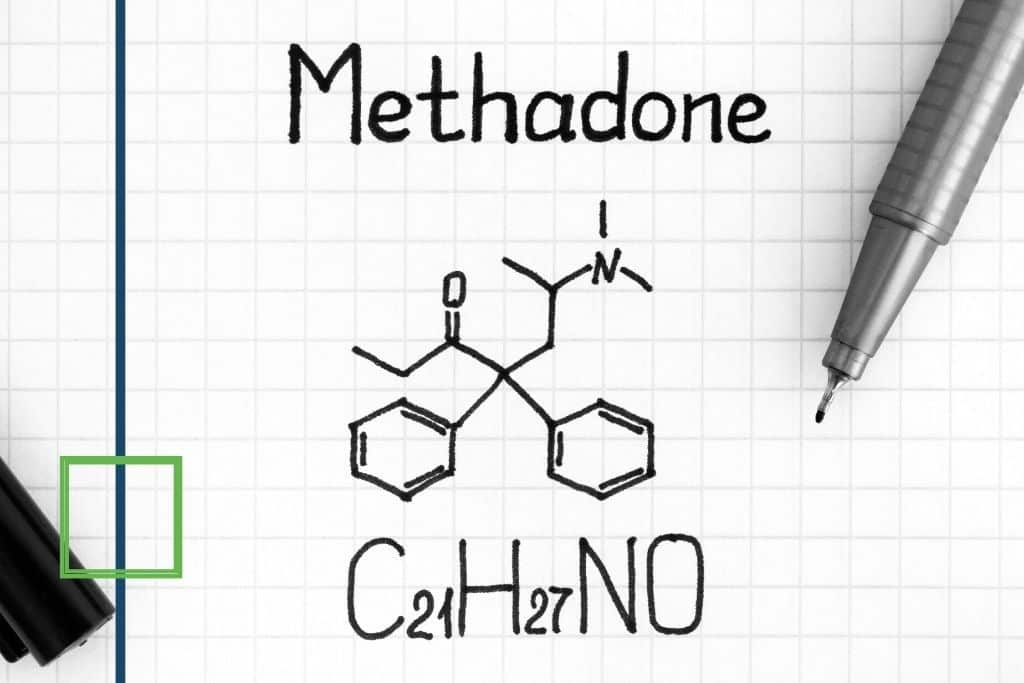Substance Abuse
Substance abuse, also known as drug abuse, is the use of a drug in harmful amounts or methods. It is a form of substance-related disorder. There are different definitions of drug abuse are used in public health, medical and criminal justice contexts. In some cases, illegal or anti-social behavior occurs when the person is under the influence of a drug, and long-term personality changes in individuals may also occur. In addition to possible physical, social, and psychological harm, the use of some drugs may also lead to criminal penalties, although these vary widely depending on the local jurisdiction. Fortunately, there’s a lot of treatment options when you go into a substance abuse treatment center.
Substance abuse can be defined as a pattern of harmful use of any substance for mood-altering purposes. “Substances” can include alcohol and other drugs (illegal or not) as well as some substances that are not drugs at all. “Abuse” can result because you are using a substance in a way that is not intended or recommended or because you are using more than prescribed.
Substance use disorders affect people from all walks of life and all age groups. These illnesses are common, recurrent, and often severe, but they are treatable, and many recover. Mental disorders involve changes in thinking, mood, and behavior. These disorders can affect how we relate to others and make choices[1].
Get Help. Get Better. Get Your Life Back.
Searching for Accredited Drug and Alcohol Rehab Centers Near You?
Even if you have failed previously and relapsed, or are in the middle of a difficult crisis, we stand ready to support you. Our trusted behavioral health specialists will not give up on you. When you feel ready or just want someone to speak to about therapy alternatives to change your life call us. Even if we cannot assist you, we will lead you to wherever you can get support. There is no obligation. Call our hotline today.
(844) 597-1011Medications Used During Your Stay in a Substance Abuse Treatment Center
Although no single recovery pathway is suitable for everyone, people addicted to opioids are usually more successful with medication-assisted treatment (MAT). This treatment uses FDA-approved medication together with counseling and behavioral therapies. Three FDA-approved medications are used in the U.S. to treat opioid addiction: methadone, buprenorphine, and naltrexone.
- Methadone: Methadone is a long-acting medication that reduces cravings and withdrawal symptoms. It can block the euphoric effects of short-acting opioids, such as heroin. Methadone is usually taken daily as a drinkable liquid. It can be dispensed only at licensed, federally regulated opioid treatment programs, so having reliable daily transportation to a clinic is essential while taking methadone. It is a recommended treatment for opioid use disorder during pregnancy.

Buprenorphine: Buprenorphine works similarly to methadone, controlling withdrawal symptoms and blocking cravings. Buprenorphine is usually taken daily as a small film that must be dissolved under the tongue. Buprenorphine is widely available in a formula containing added naloxone (commonly known as Narcan), which discourages abusing or injecting it.
Naltrexone: Naltrexone blocks the ability of opioids to eliminate pain and induce euphoria. This removes the rewarding aspects of opioid use that result in a desire for more. It is available in either an extended-release injection given every 30 days or in tablet form that is taken once a day by mouth.
Because of the way naltrexone blocks opioid receptors in the brain, it’s not a good fit for everyone. Before starting naltrexone, you need to get through an initial 7-10 days of withdrawal. People with chronic pain problems, who sometimes need to take opioid medications, should work carefully with their doctor about a pain management strategy before starting naltrexone.

Get Your Life Back
Find Hope & Recovery. Get Safe Comfortable Detox, Addiction Rehab & Dual Diagnosis High-Quality Care.
Hotline(844) 597-1011Understanding the Cost of Treatment

Understanding the costs of and how to pay for treatment can be complicated and confusing. Unfortunately, resources aren’t always well organized or easy to find. The best way to make sure you choose care that you can afford is by asking questions, taking notes, and making sure you know what kind of support you’re eligible for. Don’t let money stop you from finding treatment. There are free and low-cost facilities across the country, and many others accept Medicaid or private insurance. Your state also has funding set aside to help people without insurance afford treatment.
Addiction Can Affect Anyone
People from all backgrounds experience addiction. Addiction doesn’t care how old you are, how much money you make, or your skin color; it has no bias. While the initial choice to use a drug is often voluntary, the powerful effects of addiction make it very hard to stop, even if someone wants to. When drugs or alcohol are used so often that they have a significant adverse impact on your life, making it unlivable to the quality it was before, this is called a substance use disorder. It causes intense cravings for alcohol or drugs and can include:
- Using illegal drugs like heroin or cocaine or excessive alcohol drinking.
- Using prescription drugs in ways other than prescribed or using someone else’s prescription.
Types of Programs in a Substance Abuse Treatment Center
Treatment helps people disrupt addiction’s powerful effects on the brain and behavior and regain control of their lives. There are many kinds of treatment; your recovery may include one or more of these.
Interim care: Many facilities have long waitlists but can still help. Temporary care provides daily medication and emergency counseling. This can be a helpful bridge from beginning recovery to admission to a regular outpatient, inpatient substance abuse treatment center, or residential setting.
Outpatient: Outpatient treatment is best for people willing to attend regular appointments and counseling sessions. Since there is no overnight care, it’s essential to have a stable living environment, reliable transportation, and supportive family or friends.
Co-occurring mental health and substance use treatment: Having both substance use and mental health disorder. About half of people who experience one will also experience the other[3]. Addressing both is critical for success in recovery, and integrated treatment programs can help. Integrated care brings together different areas of expertise to treat the whole person and ensure that treatment for one factor doesn’t interfere with the treatment of others.
Hospital inpatients: These are usually connected to a hospital or clinic and provide detox and rehabilitative care. People with serious mental or medical concerns and substance use disorders are the most likely to use inpatient treatment. In addition, teens and adolescents benefit from the structure of inpatient treatment to fully understand their needs and make a treatment plan.
Residential: A stable setting for long-term phased treatment. Each substance abuse treatment center has specific rules and expectations for both residents and their families. Residential care usually lasts from a few months to a year. They’re best for people without stable living or work situations and with limited or no family support in treatment. They also help people with severe disorders who have been unable to get and stay sober or drug-free in other substance abuse treatment center.
Transitional housing: A temporary space to stay while transitioning from an intensive treatment setting. Sometimes called a halfway house or sober living facility. As part of the path to independent living, these facilities support people in recovery with temporary places to live. They may also have support programs around employment and education or case managers to help residents succeed during and after their stay.
Detoxification (Detox): A process that helps the body rid itself of substances while withdrawal symptoms are treated. Detoxification is not treatment; it is a first step that can prepare a person for treatment.
Telemedicine (including internet and mobile options): Telemedicine can be a tremendous help to people who cannot regularly get to a substance abuse treatment center. While it’s not the first step in treatment, telemedicine can be a vital part of a treatment plan, especially for patients living far away from a facility. The We Level Up treatment center does not provide telemedicine sessions; rather, we treat intense SUD and mental health disorders requiring residential therapy.
First-class Facilities & Amenities
World-class High-Quality Addiction & Mental Health Rehabilitation Treatment
Rehab Centers TourRenowned Addiction Centers. Serene Private Facilities. Inpatient rehab programs vary.
Addiction Helpline(844) 597-1011Proven recovery success experience, backed by a Team w/ History of:
15+
Years of Unified Experience
100s
5-Star Reviews Across Our Centers
10K
Recovery Success Stories Across Our Network
- Low Patient to Therapist Ratio
- Onsite Medical Detox Center
- Comprehensive Dual-Diagnosis Treatment
- Complimentary Family & Alumni Programs
- Coaching, Recovery & Personal Development Events
Stages Of Approaches In A Substance Abuse Treatment Center
Still, an intervention is not a simple one-time event. Instead, it is a complex process comprised of a few essential steps and stages. The primary stages of substance abuse interventions are listed below.
Planning: The planning stage is one of the essential stages of substance abuse interventions. During this stage, loved ones should meet with an intervention specialist, decide who should participate in the intervention, and determine what should be said.
Execution: Executing a successful substance abuse intervention takes patience and finesse. During the actual intervention, a substance abuser must be convinced to sit and listen to what each group member has to say. They must then decide to either go into a substance abuse treatment program or lose the enabling support of their loved ones.
Follow-up: The following intervention is often one of the most overlooked stages of a substance abuse intervention. If a substance abuser refuses to seek treatment, the loved ones must follow through with their consequences. This usually involves stopping their enabling behavior, such as covering for the addict under the influence or recovering from their drug of choice, ending financing, or housing arrangements. Some people go even further and stop all communication with an active addict.
Next Things to Do
Assessment: Everyone entering treatment receives a clinical assessment to determine the type of treatment that’s the best fit. No one type of treatment is suitable for everyone; the treatment needs to meet your individual needs to work. Although clinical assessment continues throughout a person’s treatment, it starts at or just before admission to a treatment program. All facilities in the treatment locator offer assessment services.
Pre-treatment and detox: Medically supervised withdrawal (often called detoxification or detox) uses medication to help people withdraw from alcohol or drugs after using large amounts. Sometimes, withdrawal can be so severe that people hallucinate, have convulsions, or develop other dangerous conditions. Detox can take place on a regular medical ward of a hospital, in a specialized inpatient detoxification unit, or on an outpatient basis with close medical supervision. Detoxification may take several days to a week or more.
Social detoxification can provide support and care for someone who needs to be medically supervised during withdrawal. Sometimes social detoxification centers are part of a residential treatment program; others, they are separate facilities. Social detoxification centers are not hospitals and seldom use medication, but the person does stay there from several days to one week. A staff of nurses watches each person’s medical condition closely, and specialists are available to help them through the most challenging parts of withdrawing from alcohol and drugs. It is essential to know that detoxification is not treatment; it is the first step to prepare a person for treatment.

World-class, Accredited, 5-Star Reviewed, Effective Addiction & Mental Health Programs. Complete Behavioral Health Inpatient Rehab, Detox plus Co-occuring Disorders Therapy.
CALL(844) 597-1011End the Addiction Pain. End the Emotional Rollercoaster. Get Your Life Back. Start Drug, Alcohol & Dual Diagnosis Mental Health Treatment Now. Get Free No-obligation Guidance by Substance Abuse Specialists Who Understand Addiction & Mental Health Recovery & Know How to Help.
Substance Abuse Intervention Strategies
As we’ve already established, planning and executing a substance abuse intervention properly takes skill. However, the following substance abuse intervention strategies should help you stage a successful intervention.
- Consult an intervention specialist: Anyone staging an intervention is encouraged to meet with a qualified and experienced intervention specialist. This is a professional who can give you a great deal of insight into interventions, help you plan the intervention, and keep the intervention focused and calm.
- Choose caring loved ones to participate: Never choose a person that condones or contributes to your loved one’s alcohol or drug use. Instead, each group member should be someone who respects and cares for the addict and only wants the best for them.
- Establish consequences: When an addict is faced with an ultimatum or consequences for not entering treatment, they will have more incentive to enter treatment. So what will you do if they refuse treatment? This can be anything from removing emotional or financial support to banning them from family events until they stop their destructive behavior.
- Don’t speak with anger or judgment: Always reiterate the fact that you care for and respect the addict during an intervention. Never act judgmental or lash out in anger. This will only exacerbate the situation and possibly cause the addict to become angry, obstinate, and defensive.
- Stop enabling behaviors: Whether you realize it or not, your behaviors and actions could be enabling your loved one, causing them to continue to abuse drugs or alcohol. This could include giving them money when they need it, making excuses, or covering for them when they are under the influence. A substance abuse interventionist can help you identify these actions and behavior and help you put a stop to them.
- Plan: And then plan some more. Before your intervention, you must prepare every detail and plan for every possibility and reaction. You should know who will participate in the intervention and what they will say, and where and when it will hold.
- Follow-through: Whatever consequences that you decide upon, always follow through with them. If you vow to stop calling your loved one’s boss and making excuses, then stop, even if it means your loved one may lose their job. This may be the most challenging part of an intervention but think of it as tough love. If your loved one is constantly being bailed out of jams, they will never learn that their substance abuse is detrimental.
- Prearrange treatment: Make it as easy as possible for your loved one to go into a substance abuse treatment program. The easier it is, the more likely they will be to follow through with treatment. This can include making arrangements with an addiction counselor, reserving a spot in a center facility, and even making childcare arrangements for their time in treatment.
- Seek help for yourself: Whether your loved one agrees to treatment or not, you may want to consider getting help for yourself. Attending counseling sessions or support group meetings can help you better understand the addiction and better prepare you for dealing with an addict.
- Be there for your loved one: Dealing with an addiction is a difficult time for everyone, including yourself and your loved one. If your love is ready for treatment and needs someone to talk to, give them that support. Make it clear that you care for their well-being and will be there to support them through the recovery process.
At We Level Up substance abuse treatment center provides world-class care with round-the-clock medical professionals available to help you cope. We work as an integrated team providing information about treatment options for substance abuse and other aspects of treatment. Make this your opportunity to reclaim your life. Call today to speak with one of our treatment specialists. Our specialists know what you are going through and will answer any of your questions.
We Level Up treatment center can help with inpatient therapy programs exclusively. Depending on the extent of secondary behavioral disorders such as addiction we can first help assess your condition and thereafter guide you to suitable treatment options. We do not provide outpatient and PHP services at this time. Call to learn more.
Your call is private and confidential, and there is never any obligation.
Experience Transformative Recovery at We Level Up Treatment Centers.
See our authentic success stories. Get inspired. Get the help you deserve.
Start a New Life
Begin with a free call to an addiction & behavioral health treatment advisor. Learn more about our dual-diagnosis programs. The We Level Up Treatment Center Network delivers recovery programs that vary by each treatment facility. Call to learn more.
- Personalized Care
- Caring Accountable Staff
- World-class Amenities
- Licensed & Accredited
- Renowned w/ 100s 5-Star Reviews
We’ll Call You
Sources
[1] SAMHSA – https://www.samhsa.gov/find-help/disorders
[2] Find Treatment Gov – Types of treatment | FindTreatment.gov
[3] Find Treatment Gov – https://findtreatment.gov/content/understanding-mental-health/serious-mental-illness
[4] Addiction Blog Org – https://addictionblog.org/FAQ/interventions/substance-abuse-intervention-strategies-top-10/




